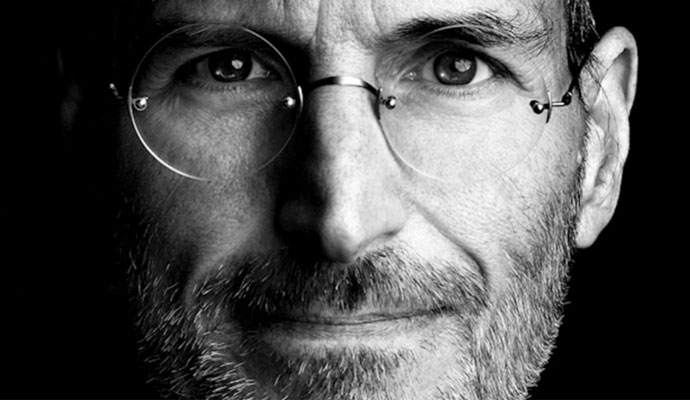5 Things We Can Learn From Steve Jobs


Steve Jobs was an entrepreneur and incredibly successful CEO, but what intrigued us most about him didn’t really fall under the umbrella of wealth or business. Rather, he intrigued us with his ideas, insights, and natural leadership.
Creativity: Connecting The Dots
One thing Steve Jobs was often associated with and questioned about was innovation.
As many in the tech industry know, Apple was not purely an innovation. It borrowed ideas from Xerox Alto, a company that didn’t take well to the idea of sharing and finally sued Apple in 1989. (Jobs kindly stated that Xerox was so disorganized that they “couldn’t even sue anyone on time.”)
However, as Jobs himself admitted, “Creativity is just connecting things. When you ask creative people how they did something, they feel a little guilty because they didn’t really do it, they just saw something. That’s because they were able to connect experiences they’ve had and synthesize new things.”
Thus, if there’s anything Jobs has taught us about creativity and innovation, it’s that we’re all capable of it. Anyone can observe and connect the dots in their everyday experiences.
Claiming Your Time
Jobs was outspoken in regards to living life with authenticity. He believed everyone should spend their lives doing things that mattered to them.
“For the past 33 years, I have looked in the mirror every morning and asked myself: ‘If today were the last day of my life, would I want to do what I am about to do today?’ And whenever the answer has been ‘No’ for too many days in a row, I know I need to change something.”
This is incredibly practical advice. Anyone can ask themselves (and answer) this question on a weekly basis. Regularly checking in on what you do and whether it’s in line with what you want to do is important. When taking into account the brevity of our lives, it suddenly becomes easier to narrow down your tasks and projects to the most meaningful ones.
Belief In Something
“You have to trust in something—your gut, destiny, life, karma, whatever. This approach has never let me down, and it has made all the difference in my life.”
While it has been suggested that religious individuals are less susceptible to depression, it’s not a viable option to force yourself to believe in something you don’t. If organized religion isn’t your cup of tea, that doesn’t mean you’re barred from all faith. Jobs is basically saying that those who develop and stand by their personal philosophies have more stability; it gives you something to fall back on throughout life.
Success Without Dwelling on Things
“I think if you do something and it turns out pretty good, then you should go do something else wonderful, not dwell on it for too long. Just figure out what’s next.”
This quote was Jobs’ way of reminding people not to get too comfortable, which he exemplified in his own work at Apple. Success should not be a permission slip to slack or stop trying; rather, it can serve as evidence of our capabilities and an incentive to aim higher.
Simplification
It’s no coincidence that Jobs spoke out in support of simplicity when he did. In the age of rapidly expanding technology and fast-paced lifestyles (to which Apple was a major contributor), Jobs acknowledged the need to simplify, focus and eliminate. By this, he meant that we must have the clarity to know specifically what we want. To be successful, we must also be able to say no to what we don’t want and focus consistently on that which we do.
“That’s been one of my mantras—focus and simplicity. Simple can be harder than complex: You have to work hard to get your thinking clean to make it simple. But it’s worth it in the end because once you get there, you can move mountains.”









































